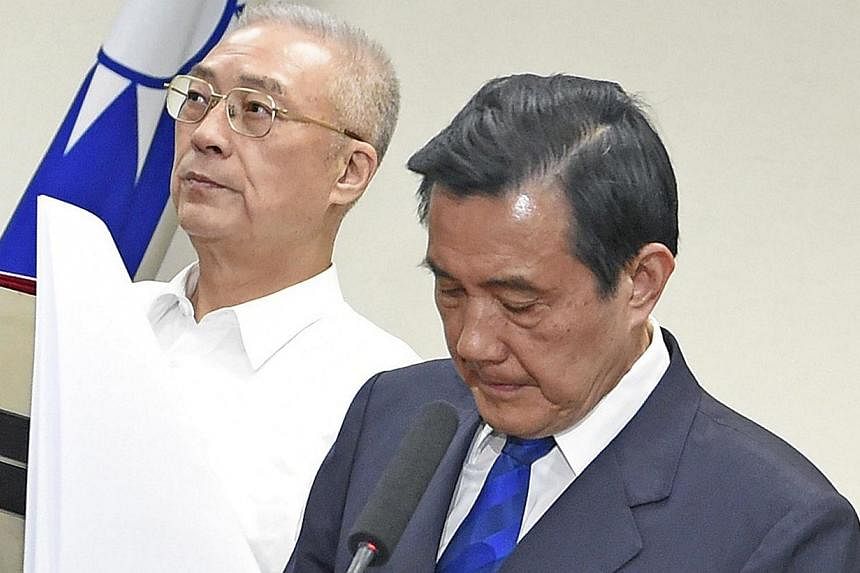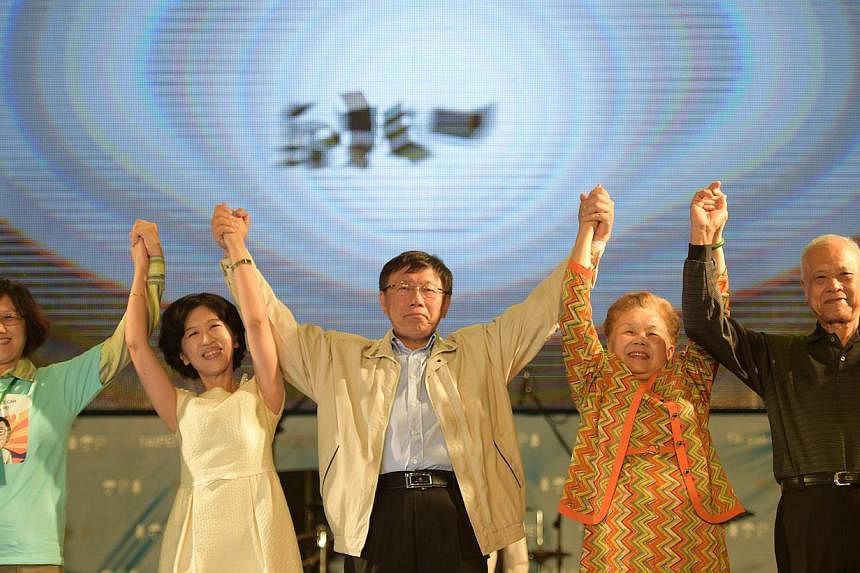IN A stunning indictment of the ruling Kuomintang (KMT) party, Taiwanese voters sent its candidates packing in elections, handing five of six key cities, including the capital of Taipei, to its rivals.
It is a historic defeat for the mainland-friendly KMT, and on Saturday night, Premier Jiang Yi-huah resigned to accept responsibility. Also taking the fall was KMT secretary-general Tseng Yung-chuan.
Despite calls from some quarters for him to step down as party chairman as well, a grim-faced President Ma Ying-jeou made no mention of this possibility. Instead, he said at a press conference - where he bowed once in apology to supporters - that he had "heard the message from voters" and that he will be embarking on "reforms". He did not specify what these would be.
In the course of a day, when 13 million people, about 70 per cent of registered voters, went to the polls, the map of Taiwan turned overwhelming green - the colour of the pro-independence coalition.
Three cities - Taipei and Taoyuan in the north and Taichung in central Taiwan - fell from the control of the KMT-led pan-blue camp.
In the south, the opposition Democratic Progressive Party (DPP) retained their traditional strongholds of Kaohsiung and Tainan.
This means the only city left with a KMT mayor is New Taipei, where popular incumbent Eric Chu shocked observers by slipping behind in the race at one point.
The tsunami victory for the pan-green coalition was a clear rejection of Mr Ma and his governance, and means that he will be effectively hobbled for the remaining 1.5 years of his term.
Over the past six years, he oversaw the warming of cross-strait relations including in direct flights and trade links. But this has been controversial, with a student-led Sunflower protest this year scuppering the ratification of a services trade pact, for fear that it means growing mainland influence in Taiwan.
The economy has also struggled to reach its previous heights, with people feeling the bite of stagnating wages, rising costs and widening inequality. Recent food scandals also marred the island's image.
Newly elected Taipei mayor Ko Wen-je, an emergency room doctor, declared the results as the beginning of a new political culture.
"It is time for the people to be masters of their own house," he said, vowing that his government will be a transparent and participative one. "Those in my government will not have to be members of any political party - but just focus on serving the people."
Running for election for the first time as an independent candidate, Dr Ko, 55, successfully appealed to voters tired of partisan politics.
His rival, Mr Sean Lien, 44, son of former premier and KMT honorary chairman Lien Chan, conceded defeat tearfully but hinted that he will be back in the political arena.
With his wife, he bowed five times, each lasting eight seconds.
"I have lost a battle but not the war. Ho hui you qi (hope to meet again in future)," he said.
It was only the second time in history that KMT lost the capital, long seen as a grooming ground for future presidents. DPP's Chen Shui-bian won in 1994. Six years later, he became president.
Yesterday's results are also a harbinger of the 2016 presidential election. DPP chairman and presumptive presidential candididate Tsai Ing-wen called it a "time of change for Taiwan".
"From local elections, we will, step by step, win Taiwan back."
Change was also a popular word among voters. In Taichung, Mr Sean Hsiao, 46, a manager at an electronics company, voted for DPP candidate Lin Chia-lung, who defeated KMT mayor of 13 years Jason Hu, saying it was time for new blood and new policies.
"Under the Ma administration, we have seen no improvement in our standards of living. The DPP candidate is young and energetic. We will give him a chance."



